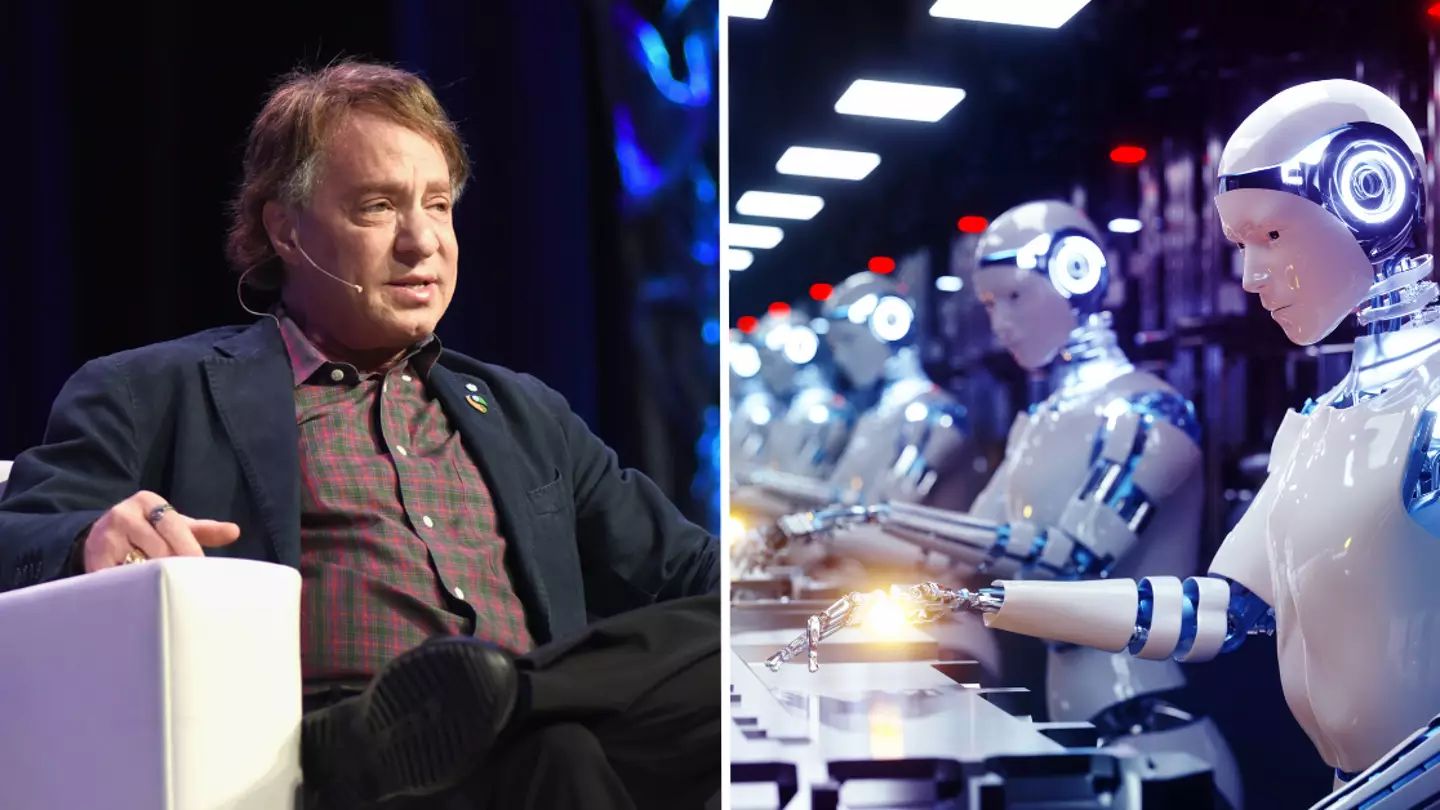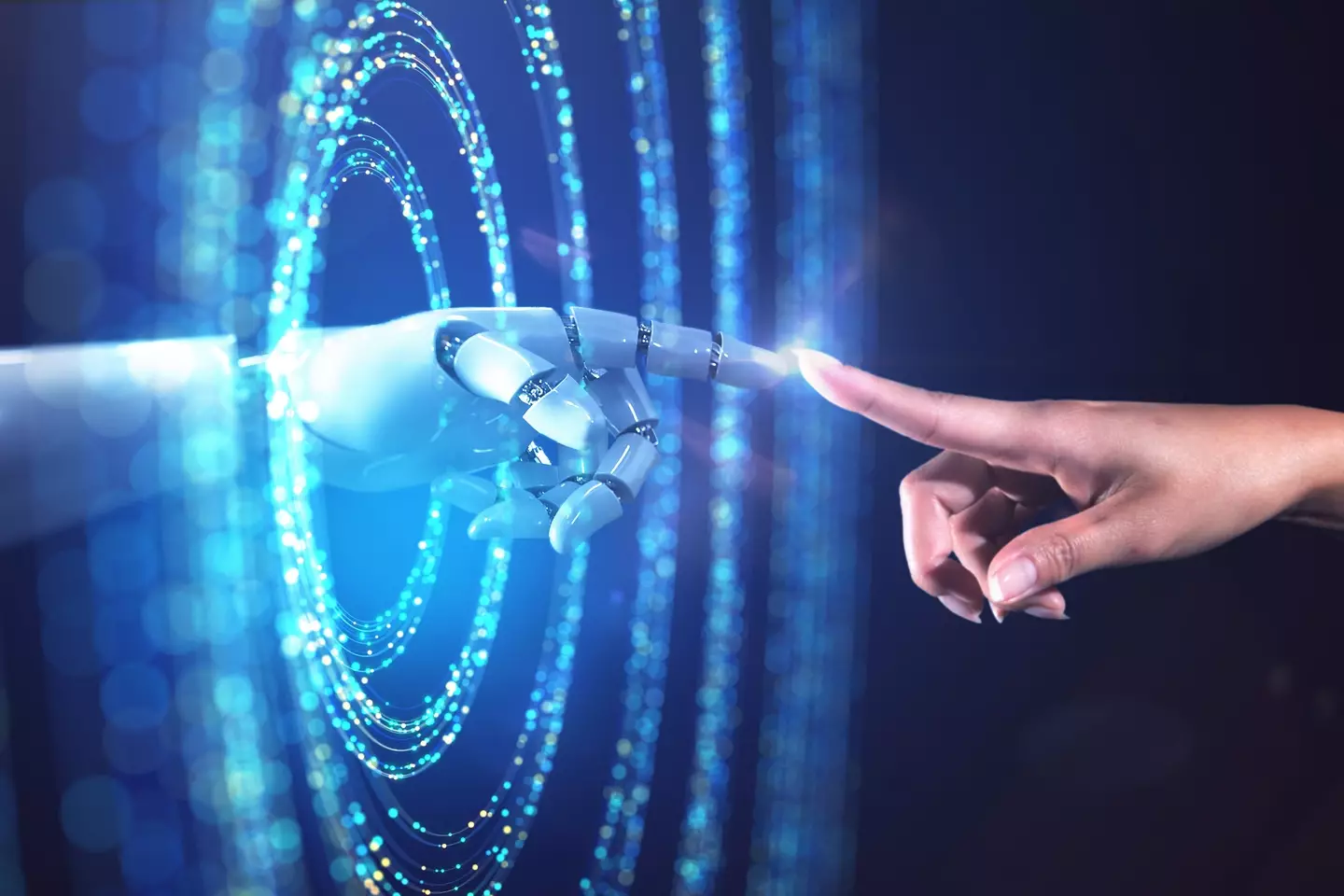
A scientist and engineer who accurately predicted the rise of AI still has a list of worrying predictions that are yet to come true.
Famous futurist Ray Kurzweil, 77, has previously been right on the money with most of his eerie guesses for what the years ahead held, including the growth of the internet, smartphones, and self-driving cars.
However, don't get confused - this man is no mystic like Baba Vanga or Nostradamus - his predictions are actually made based on his extensive scientific and technological knowledge.
Having worked on artificial intelligence and related inventions for the past six decades, it's safe to say that he's an expert on the controversial tool.
Advert
With his impressive track record, it means we could be seeing some more huge AI advancements in the coming years, affecting life-span, genetic enhancements, and more.
So, here's everything you need to know about Ray Kurzweil - including what he's previously accurately predicted and what he thinks the future holds.

Who is Ray Kurzweil?
Ray Kurzweil is a renowned American computer scientist, author, entrepreneur, futurist, and inventor.
As we say, he has worked on the development of artificial intelligence for 60 years and his inventions span from text-to-speech synthesis to electronic keyboard instruments and advancements in AI computing.
He's also written a slew of books on how technology will transform humanity in the decades to come, laying out his predictions.
Kurzweil's most notable belief is that the world is headed towards what’s known as 'the singularity,' when man and machine merge.
Essentially, it's a theoretical scenario where technological growth becomes uncontrollable and irreversible - doesn't sound terrifying at all.
What has Ray Kurzweil previously accurately predicted?
As we say, Kurzweil has already made dozens of predictions in his books, many of which have already materialised.
The expert predicted the rise of the internet as a global information network all the way back in the early 1990s, as well as the rise of devices like smartphones and smartwatches in 1999.
He foresaw that by 2009, PCs would be 'available in a wide range of sizes and shapes,' as well as guessing that The Cloud would come into play - devices would 'become communicating Web servers, thereby forming vast supercomputers and memory banks'.
.jpg)
As per TV writer Scott Gunnison Miler's Medium, the scientist also predicted that we would be able to verbally ask computers simple questions and get answers back. He also knew they'd be to tell jokes, schedule reminders, and more - think Alexa or Siri.
He correctly expected the rise of AI, and previously said that by 2019, computers would be close to a human-like assistant for us.
And famously, Kurzweil predicted in the 1980s that a computer would beat the world chess champion by 1998, which actually happened in 1997.
He told The Guardian last year: "I’m really the only person that predicted the tremendous AI interest that we’re seeing today. In 1999 people thought that would take a century or more. I said 30 years and look what we have."
What are Ray Kurzweil's predictions for the future?
So, what we all want to know is what does the futurist see happening next?
At a time when AI is already causing controversy left, right and centre, some people may not want to know the answer.
Well, as we say, Kurzweil's idea of 'singularity' is still on the agenda - and he thinks it's going to happen within the next two decades.
The scientist predicted that 'once the singularity has been reached, machine intelligence will be infinitely more powerful than all human intelligence combined'.

No, this isn't a Black Mirror episode, it's worryingly his real-life prediction.
He told the Guardian: "We’re going to be a combination of our natural intelligence and our cybernetic intelligence and it’s all going to be rolled into one. We are going to expand intelligence a millionfold by 2045, and it is going to deepen our awareness and consciousness."
Kurzweil also predicts that humans will merge with AI via nanobots, brain-computer interfaces, and genetic enhancements.
He added: "Making it possible will be brain-computer interfaces which ultimately will be nanobots – robots the size of molecules – that will go noninvasively into our brains through the capillaries.
"Think of it like having your phone, but in your brain. If you ask a question your brain will be able to go out to the cloud for an answer similar to the way you do on your phone now – only it will be instant, there won’t be any input or output issues, and you won’t realise it has been done."
He thinks together, these innovations will lead to immortality and a collective human intelligence millions of times more powerful than what it is today.
Topics: Artificial intelligence, Technology, News, World News, Science